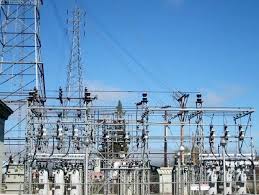The Nigerian Electricity Management Services Agency (NEMSA) and the Nigerian Independent System Operator (NISO) have launched a joint plan to boost safety, enforce technical standards, and improve electricity metering across Nigeria. Both agencies say the new collaboration is part of efforts to ensure safer, more reliable, and more transparent power supply nationwide.
This new development was made public on Sunday in a statement by the Head of Communications and Protocol at NEMSA, Ama Umoren. According to the statement, the two organisations have formed a Joint Technical Team made up of experts from both NEMSA and NISO. The team is expected to focus on areas such as metering infrastructure, compliance with regulations, electrical inspection services, renewable energy integration, and financial and logistics coordination.
A major part of the action plan is the immediate recertification and standardisation of all grid-connected metering systems in the country. Both NEMSA and NISO believe this will help improve the accuracy of electricity billing, increase energy accountability, and boost confidence in the power supply chain.
While speaking at the high-level meeting where the agreement was finalised, the Managing Director of NISO, Mr Abdu Mohammed, said that NEMSA plays a key role in enforcing technical standards and ensuring that electrical installations and equipment are tested and certified before use. He stressed the urgent need to deal with Nigeria’s high Technical Loss Factor, which has been blamed on poorly calibrated and inaccurate meters.
Mr Mohammed urged NEMSA to make transparent and accurate meter certification a top priority. He also noted that all new substations and transmission lines—whether operated by Transmission Service Providers (TSPs), Generation Companies (Gencos), or Distribution Companies (Discos)—must be tested and approved by NEMSA before they are commissioned.
In his own remarks, the Managing Director of NEMSA, Engr. Aliyu Tahir, assured stakeholders that the agency remains fully committed to enforcing safety rules and technical standards across the power sector. He listed some of the challenges the agency faces, including grid instability caused by the reckless use of 33kV feeders, delays in enforcing compliance, and disregard for regulations by some power distribution companies.
To solve these problems, Engr. Tahir said that NEMSA and NISO have agreed to work closely together to speed up enforcement activities. He said they would introduce administrative penalties in cases where legal action takes too long. This, he said, will help ensure that violators are quickly sanctioned, thereby improving the sector’s overall performance.
Both agencies also agreed to share operational data and partner with other important institutions like the Standards Organisation of Nigeria (SON) and the Nigerian Customs Service. This partnership, they said, would help stop the importation and use of substandard electrical materials that often lead to safety hazards and power failures.
Looking ahead, Engr. Tahir revealed that NEMSA is developing guidelines for integrating mini-grids and energy storage systems into the national grid. This is in line with the federal government’s push to promote renewable energy and reduce reliance on fossil fuels. He explained that these efforts would make it easier for private and public investors to set up solar, wind, and other clean energy projects across the country.
He also said that NEMSA supports amending the Electricity Act to give the agency more powers to enforce standards and sanctions in the sector. According to him, the proposed changes will help NEMSA better carry out its duties and protect Nigerians from unsafe electrical practices and unreliable service delivery.
Through this joint plan, NEMSA and NISO hope to provide Nigerians with a safer, more compliant, and better-managed electricity sector. The partnership marks a new step toward achieving stable power supply and improving customer confidence in the system.
